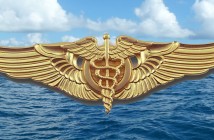FALLS FALLS are a leading cause of serious injury in older people. Safety hazards in the home, medication side effects walking and vision problems, dizziness, arthritis, weakness, and malnutrition can boost the risk of falls. Call your doctor, or if serious, 911, if you have fallen. He will look into what caused the fall and suggest steps to prevent future falls. OSTEOPOROSIS or “thinning bones” -is a condition that makes the bones of older adults more fragile and easy to break. Not enough calcium and vitamin D, too little exercise, too much alcohol, smoking, some medications, and some medical conditions like thyroid problems can increase the risk of osteoporosis. You should get a Bone Mass Density test if you are over 70. DIZZINESS Lightheadedness, spinning, almost fainting, falling make it harder to walk and increase your risk of falls. Low blood pressure, dehydration, low blood sugar, vision or inner ear problems can cause dizziness. Tell your doctor if you feel dizzy or fall . Irregular heartbeat, too slow heartbeat can also cause lightheadedness. DIFFICULTY WALKING -OR GAIT PROBLEMS This is usually due to a combination of age-related health problems or diseases such as arthritis, bone and muscle problems, Parkinson’s Disease, poor circulation, changes after a stroke, vision problems, weakness, Multiple Sclerosis. Tell your Health Care Provider if you find it hard to walk or if you feel unsteady on your feet. Exercise and physical therapy may help.


